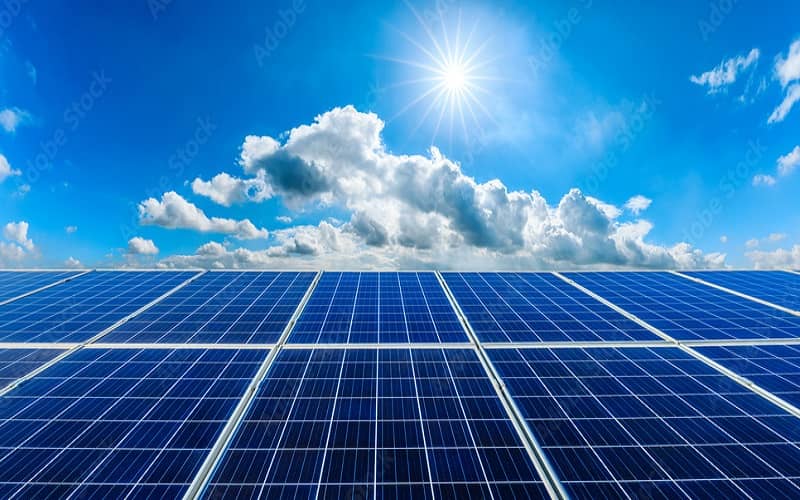Solar energy is a rising sector full of many hot topics.
The On-Grid vs Off-Grid Solar System debate is one of them.
However, both the system types work on the same basic principle. But some operational differences create a divide between the two.
In this blog, we will explore how on-grid and off-grid systems are different from each other.
We’ll go through the similarities as well.
Although deciding between on-grid vs off-grid solar system is not easy. But we’ll find a way to distinguish one from the other.
Let’s start the discussion with the general principle of the solar system working.
How Does a Solar System Work?
Solar energy is acquired by converting sunlight into running electricity.
Solar Panels (an array of photovoltaic cells) are an integral part of any solar power system.
The photovoltaic cells present in solar panels convert the sun rays into direct current. This process is called the photovoltaic effect.
Then it is up to you, what you want to do with that electricity.
You can store it as DC in batteries. You can also use it directly after converting it into AC through a solar inverter.
This is the general structure of a solar system.
Now it is further classified into two different types on the basis of connectivity to the grid.
These two types are:
- On-Grid Solar System
- Off-Grid Solar System
We’ll discuss them both one by one. This we can find which one is better among the two.
Let’s start with On-Grid Solar System.
On-Grid Solar System
The on-grid solar system is directly connected to the supply grid. It more used type among the two.
Along with solar cells, a solar inverter is usually installed on the rooftop.
The fact that it is always tied with the utility grid gives a little more comfort to the users.
With an on-grid solar system, you get a special feature of the feed-in tariff. Here you can export the excess electricity from your solar system back to the grid.
You can save a decent amount of money out of this process called ‘net-metering.
On-grid systems are best for residential purposes. The utility grid works as the backup in this case.
The on-grid solar system offers more than net-metering. Let’s have a look.
Key Advantages of On-Grid Solar System:
- You don’t need to buy a battery. That saves a lot of expense.
- The utility grid acts as a full-time backup. For both over and under-production by your solar system.
- You don’t need to worry about the changes in your power usage. Whether it goes up or down, you are covered.
Installing an on-grid solar system for home is not only about the advantages. There are some limitations as well.
Limitations of On-Grid Solar System:
- During a power blackout or damages to the utility grid, it cannot generate electricity.
- The on-grid solar system generates power in the day only. At night, they use the grid electricity.
- Energy conservation is relatively lower in the on-grid solar system.
Despite these few limitations, on-grid is the best suitable for average household usage.
Now let’s move on to the Off-grid Solar System.
Knowing about both is important to get a clear verdict on On-Grid vs Off-Grid Solar Systems.
Off-Grid Solar System
Off-grid systems are installed with a powerful battery backup. This makes the whole apparatus relatively larger than on-grid.
The off-grid system’s working is no different than how does an on-grid system work.
However, this system is not connected to the utility grid.
It is self-dependent on power supply throughout the day. The excess power produced is stored in the batteries.
This stored power comes in handy during nights or rainy days.
The off-grid solar system Australia is useful in remote areas. Areas that are way too far from the grid electricity supply can make the most out of it.
Now let’s have a look at some of its advantages.
Key Advantages of Off-Grid Solar System:
- This kind of solar system is 100% self-sustaining for all the power generation and usage as well.
- They are easy to upgrade or expand if your energy usage increases.
- Helps in the way forward to a cleaner environment by reducing the carbon footprints.
Apart from these advantages, there are some limitations as well.
Limitations of Off-Grid Solar System:
- Few extra items in the apparatus such as battery lead to a high initial cost.
- Batteries need regular maintenance.
- No additional features like feed-in-tariff are there.
However, there are some limitations. But the off-grid solar system poses a great prospect of self-sustaining energy.
Well, that’s all the important data on off-grid vs on-grid solar power systems.
Now it’s time to conclude.
Final Verdict
So finally we have created a verdict on on-grid vs off-grid solar system Australia.
After looking at on-grid and off-grid solar system difference:
It is better to install an on-grid solar system for residential purposes in the city.
The active utility grid will help to maintain an uninterrupted power supply.
But for the remote areas far away from the main supply still need an off-grid solar system.
For further assistance, you can reach out to us…
